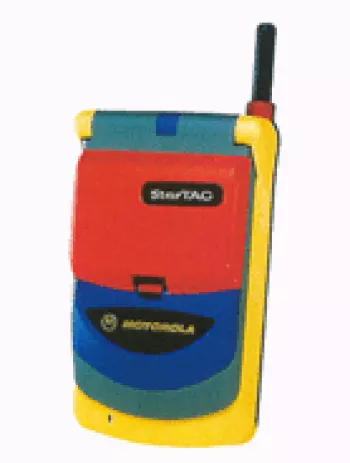
Introduction to Motorola V195
The Motorola V195 was an intriguing device in the world of feature phones during its time. Released in 2006, it targeted users who valued basic calling and messaging features without the complexity and high cost of a smartphone. Even though it's been discontinued, the V195 serves as a nostalgic reminder of simpler times in the mobile phone industry.
Design and Build
The Motorola V195 is compact, fitting comfortably within the user's palm with its dimensions of 91 x 47 x 23 mm. Weighing just 100 grams, this device was easy to carry in pockets or small bags. The design is straightforward with a clamshell structure, providing a level of protection for the screen when closed. The Mini-SIM slot was a standard feature, with the phone's exterior exuding durability.
Display
The device features a CSTN screen capable of displaying 65K colors at a resolution of 128 x 160 pixels. While the display's technology and resolution were basic by today's standards, they were standard for feature phones at the time, providing sufficient clarity for menu navigation and reading messages.
Network and Connectivity
The Motorola V195 supports GSM networks (850/900/1800/1900), allowing it to operate on 2G bands across various regions. Although it supports GPRS Class 10 for basic mobile internet connectivity, the absence of EDGE technology limited its data transmission speeds. Nonetheless, these connectivity options were adequate for voice calls and text messaging at the time.
Memory and Storage
With 5MB of internal storage and no card slot for expansion, the V195 was limited in terms of storing media files. However, it was adequate for storing contact lists and messages. The phonebook feature was capable of storing numerous contacts without significant issues.
Camera
The Motorola V195 did not include a camera, a reflection of its focus on communication rather than multimedia functions. This would be a downside for users looking to capture images on their phone but aligned with the target audience who primarily needed essential phone features.
Sound and Media
The V195 includes a loudspeaker, supports vibration alerts, and uses downloadable polyphonic and MP3 ringtones for incoming calls and messages. However, it lacks a 3.5mm audio jack, limiting audio functionality to its built-in speaker system.
Communication and Features
For communication, the Motorola V195 supports SMS, MMS, and Instant Messaging, making it versatile within its scope. It includes a WAP 2.0/xHTML browser for accessing simple web pages. Java MIDP 2.0 support enabled users to download and play basic games, making it slightly more entertaining than phones without such capabilities.
Battery Life
The removable Li-Ion 1000 mAh battery was one of the device’s strong suits, offering up to 400 hours of standby time and up to 8 hours of talk time. This longevity made it ideal for users who needed a reliable phone without frequent charging.
Pricing and Market Position
At approximately 60 EUR during its release, the Motorola V195 was positioned as an affordable option for those who needed a simple, robust communication device. Its compatibility with multiple GSM bands made it versatile for traveling users, especially those not needing smartphones.
Conclusion
In summary, the Motorola V195 is remembered as a functional and user-friendly feature phone, ideal for basic telecommunication needs. While it lacks many of the advanced features of modern smartphones, its simplicity, reliability, and affordability ensured success in its era. For those who used it, the V195 was more than just a phone—it was a dependable companion in their day-to-day communication.
Key Features of Motorola V195
- GSM technology supporting multiple frequency bands: GSM 850 / 900 / 1800 / 1900
- Compact dimensions: 91 x 47 x 23 mm
- Lightweight: 100 grams
- CSTN display with 65K colors and resolution of 128 x 160 pixels
- Bluetooth connectivity
- MiniUSB for data transfer
- Removable Li-Ion 1000 mAh battery with up to 400 hours standby time and up to 8 hours talk time
- Supports SMS, MMS, and Instant Messaging
- WAP 2.0/xHTML browser for internet browsing
- Java support with MIDP 2.0
Disadvantages of Motorola V195
- No EDGE support for faster data transfer.
- Discontinued model, difficult to find or repair.
- Small internal storage of only 5MB without card slot expansion.
- No camera functionality.
- Lack of 3.5mm audio jack for headphones.
- No WLAN or radio capabilities.
- Basic CSTN display with lower resolution of 128 x 160 pixels.

View Also
More Phones
All Rights Reserved +14266 Phones © Mobilawy 2025

























